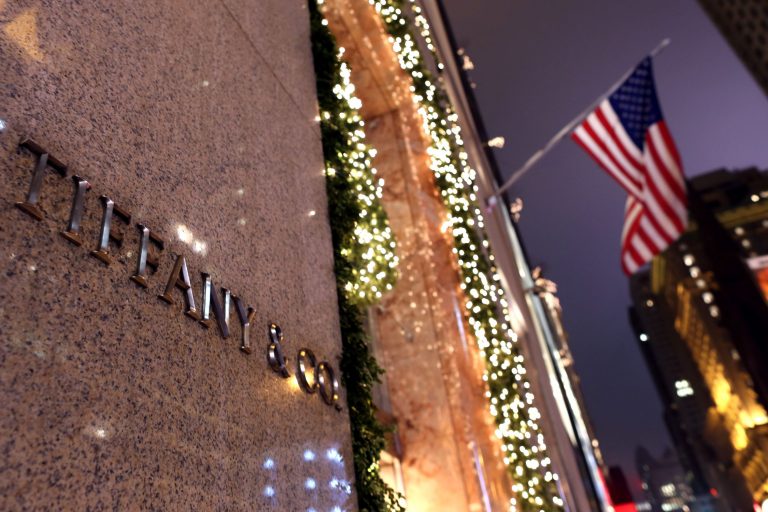End of retail and commercial lease checklist

Commercial leases come with standard clauses to ensure a property can be tenanted again once its current lease expires.
This includes the crucial make good provision which requires tenants to return the property to its original condition at the end of their time there.
What is a make good clause?
Make good clauses require commercial tenants at their lease’s expiry to return their property to the condition it was in at the time of the lease’s commencement.
These clauses are most likely to appear in an agreement where the tenants lease the building as a shell or intend to change an existing fit-out and will differ depending on owners and assets.
Some owners may see the tenant’s property changes as an improvement and will be happy for them to remain after they leave while others may agree to the tenants’ removing only their own fit-out changes and details.
However, some landlords require tenants to strip the property back to a bare shell including removing floor carpets.
So before you return your property keys, you will need to check
1. Double-check the make good obligations
Tenants need to be mindful of what their make good clause entails before they sign their lease especially with leasing agents and tenant representatives often not mentioning this clause or ensuring it’s included.
The clauses themselves can also be ambiguously worded and be either inserted into the lease in a hurry or overflow with inclusions and exceptions.
Yet even if a make good clause doesn’t appear in the lease agreement, a landlord may be able to take common law action against tenants if they don’t return the premises to its original condition.
Grow Capital’s Nick Wormald advised tenants to always begin their lease with its end in mind.
“When going into a lease where a fit-out or changes are necessary, talk to the landlord about what you’re going to do and have an agreed plan written into the make good clause,” the managing director explained.
“If there is no make good clause in the lease, ensure one is added so you know what you’re liable for.
“Knowing what the make good clause consists of at the lease outset also allows you to accrue any exit costs over the term of the lease so you won’t be out of pocket when it expires.”
One of the main problems that can arise with make good clauses is whether the property must be returned to its original condition or to a brand new state, according to FC Lawyers’ associate director Tom Wood.
“Tenants need to be careful that the lease specifically says that the property needs to be returned to its status at the commencement of the lease,” he explained.
“Tenants should also ensure ‘fair wear and tear accepted’ is in the clause.
“Most reasonable landlords will know that the property will run down over time and won’t expect the tenant to take it back to original condition.
“But if the wording of the lease is ambiguous, or it could be interpreted as meaning that the tenant has to bring it back to some new state, a scrupulous landlord might try to take advantage of this.”
Inexperienced tenants, in particular, can find make good clauses very onerous, according to real estate and projects special counsel, Rupert Lugo.
“Make sure a lawyer reads your lease and see what your make good obligations are so you understand what you need to do … and so you don’t over commit or agree to do something which is beyond your agreed obligations,” the Victorian HWL Ebsworth lawyer explained.
2. Maintain an up-to-date condition report
While not compulsory to a commercial lease, condition reports can ensure expiry date disagreements over making good clauses with landlords never happen. However, tenants often forget to organise and keep up with these reports, according to Mr Lugo.
“Without a condition report, it’s likely that you’ll end up in a dispute around the scope of your make good clause,” he said.
“The problem is that these reports aren’t compulsory so they just aren’t done and then five years down the track, you can have a big dispute as to what the property’s original condition was.”
Mr Lugo advised tenants to organise a condition report at the start of their lease, or at least obtain some photos of the property so that when the lease expired, they’d have proof of its condition.

Don’t forget to keep an up-to-date condition report. Picture Getty
“If the tenant doesn’t have a condition report in place at the end of the lease, they should go back through their records to see if there’s anything they can use to point to what the actual condition of the property was,” he said.
“Without such proof, your cost expenditure can be significant and you can burn time and money having a dispute over what the actual scope of the make good clause is.”
3. Check the redecoration clause
With most leases lasting five years or more, there is usually a requirement for the tenant to regularly repaint the walls and replace floor coverings such as carpets.
However, depending on the commercial asset, this may not be practical.
“If this clause specifies that an office tenant has to repaint with two coats of good quality paint every three years, that’s quite unreasonable because an office doesn’t get that run down in three years,” Mr Wood explained.
“But if a business is really giving the property a good beating, then this requirement may be relevant.
“Generally though, tenants will try and negotiate to only have to paint the property before they move out.”
Mr Wood advised tenants who felt the redecoration clause was unreasonable to obtain legal advice.
“For example, if the lease specifies that the tenant has to replace the carpet after three years, the tenant should get legal advice,” he said.
“In this case, the legal advice would probably be to organise a carpet replacement before the expiry of the lease term,” he said.
4. Talk to your landlord before your lease expires

Landlords and tenants should agree on what is locked into a commercial lease before signing it. Picture: Getty
The potential to renew or extend your lease is just one reason to talk with your landlord well before your lease ends.
“If you miss your option dates, then the landlord is under no obligation to grant you an extension or renewal,” Mr Word said.
“It’s all about communication.”
Mr Wormald concurred saying that both parties should agree on what is locked into the lease before signing it.
“If tenants don’t understand a clause in a lease, avoid signing it until you do or seek professional advice,” he said.
5. Ensure you recover your bank guarantee
Ongoing disputes between tenants and landlords can delay the return of bank guarantees, also known as security deposits, Mr Lugo explained.
“Each lease will have some timing around when the landlord has to return the security deposit or the bank guarantee,” he said.
“But the landlord won’t return it if there’s an existing fault with the property.
“So, if the landlord has given you a fault notice or there’s something hasn’t been remedied, you’ll want to remedy this as soon as you can, so you can get your bank guarantee back in a timely fashion.”
Mr Lugo added that there was no strict rule about when bank guarantees had to be returned to the tenant.
“But most places will have something prescriptive around when it needs to be returned,” he said.
6. Leave plenty of time to move
Tenants should expect to start thinking about packing up and moving up to six months or more before their lease expires.
“It depends on the business so if you’re a professional service, you probably don’t need that much time to move,” Mr Wood said.
“But it will be different if you’re a manufacturing business with a lot of massive machinery.
“As well, most leases will say the tenant has to exercise their option three or six months from the expiry date.
“After all, the landlord needs to find a new tenant as they don’t want their property to be vacant.”
Mr Lugo added that a commercial move was far harder and more exhausting than a residential one.
“You need to find new premises, there’s a lease that you need to negotiate for your property and then you need to make arrangements to move all your stuff so it’s not a short process,” he said.
7. Check on the extension options for retail leases
Retail leases can be different to those of other commercial leases, depending on its location, Mr Lugo explained.
“There’s legislation that applies to retail leases in Victoria wherein if the tenant is entitled to a further term, the landlord has to give the tenant notice at least three months before the last date that the tenant can exercise this option,” he said.
“If tenants don’t have an option to extend their lease terms, then the landlord has to give the tenant at least six months, but no more than 12 months, notice before the end of the term.
“If the landlord still doesn’t give the tenant a notice – and they forget things like this all the time – the tenant’s term will continue, or extend, for six months after they’re finally given a notice.
“So, this is really good for the tenant.”
– with Paul Thornhill







